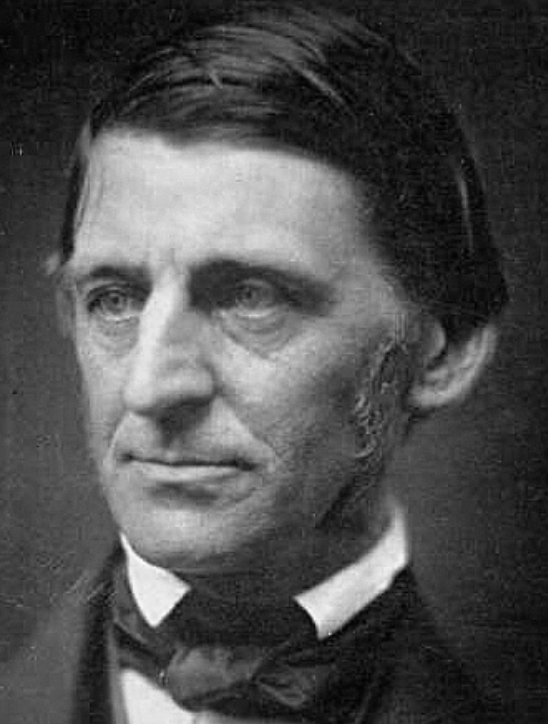On this date in 1803, Ralph Waldo Emerson was born in Boston. Educated at Harvard and the Cambridge Divinity School, he became a Unitarian minister in 1826 at the Second Church Unitarian. The congregation, with Christian overtones, issued communion, something Emerson refused to do. “Really, it is beyond my comprehension,” Emerson once said, when asked by a seminary professor whether he believed in God. (Quoted in 2000 Years of Freethought, ed. James A. Haught)
By 1832, after the untimely death of his first wife, Emerson cut loose from Unitarianism. During a year-long trip to Europe, he became acquainted with such intelligentsia as British writer Thomas Carlyle and the poets Wordsworth and Coleridge.
He returned to America in 1833 to a life as a poet, writer and lecturer. Emerson inspired Transcendentalism, although never adopting the label himself. He rejected traditional ideas of deity in favor of an “Over-Soul” or “Form of Good,” ideas which were considered highly heretical. His books include Nature (1836), The American Scholar (1837), Divinity School Address (1838), Essays, 2 vol. (1841, 1844), Nature, Addresses and Lectures (1849) and three volumes of poetry. Margaret Fuller became one of his “disciples,” as did Henry David Thoreau.
The best of Emerson’s rather wordy writing survives as epigrams, such as the famous: “A foolish consistency is the hobgoblin of little minds, adored by little statesmen and philosophers and divines.” Other one- and two-liners include: “As men’s prayers are a disease of the will, so are their creeds a disease of the intellect.” (Self-Reliance, 1841) “The most tedious of all discourses are on the subject of the Supreme Being.” (Journal, 1836) “The first and last lesson of religion is, ‘The things that are seen are temporal; the things that are not seen are eternal.’ It puts an affront upon nature.” (English Traits, 1856) “The god of the cannibals will be a cannibal, of the crusaders a crusader, and of the merchants a merchant.” (Civilization, 1862) (D. 1882)


